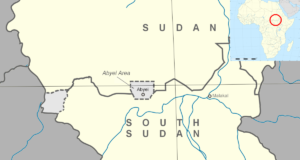By Huw Anslow
9th July 2014, Policy Unit, Issue 3, No. 1.
The decision by the UK government to take steps towards the re-opening of the UK Embassy in Iran carries with it a potentially dangerous precedent, firstly in misrepresenting the values supposedly underlining UK foreign policy, and secondly in providing tacit approval for Iran’s current actions, and by extension how Iranis conducting itself regionally and internationally. The gains made by the Islamist group Isis – now calling itself simply ‘The Islamic State’[1] – have led to a short-sighted, kneejerk reaction by the UK government to normalize relations with Iran as a means to contain Isis and reverse its gains. Without consideration of the gross contradictions in Iranian and British long-term goals, this move is made despite significant points of enmity concerning terrorism, Syria, and regional security as a whole.
On the 17th of June, UK Foreign Secreatary William Hague stated to Parliament that ”circumstances were right” to re-open the UK Embassy[2]. This is a questionable assessment of current Anglo-Iranian relations, of how present circumstances in Iraq should influence these relations, and of how Iranian policy corresponds with the UK’s interests. Uncertainty and distrust continue to dominate negotiations between outside powers and Iran, a state whose actions have been both directly and indirectly damaging to peace prospects in the Middle East.
The radical Islamist group Isis have been making steady territorial gains across Iraq throughout the year, with the capture of Fallujah in January[3], the taking of the key Northern cities of Mosul and Tikrit on the 9th and 11th of June respectively[4], and their capture of Iraq’s biggest oil refinery in Baiji on June the 24th[5]. Commentators have subsequently argued that both the West and Iran share a common interest in combating the ISIS offensive[6]. The consistent gains that Isis have made seemingly dominate the UK’s current policy begin normalizing relations between the UK and Iran, as Foreign Secreatary Hague’s announcement came swiftly after Isis advances in northern Iraq. The current focus is only on the short-term problem of Isis, rather than the long term implications of what this knee-jerk reaction could potentially give way to. While it is in both the UK and Iran’s interest for Isis to be contained and driven back from the territory under its control, the long-term goals of the UK and Iran are diametrically opposed.
Iranian Support for Terrorist Groups
Aggressive Islamic ideology remains a fundamental linchpin in Iranian foreign policy. As Middle East expert Professor Daniel Byman stated to the Senate Committee on Foreign Relations in July 2012, a major motivation behind Iran’s backing of terrorist groups throughout the region is the desire to extend Islamic revolutions throughout the Muslim world, with this goal embedded not just in Iran’s constitution but also the charter documents of key organizations, such as the Islamic Revolutionary Guard Corps[7].
Using terrorist groups as an extension of its military power, Iran has consistently undermined peace in the Middle East. Its falling out with Hamas in 2011 was the result of the group disagreeing with Syrian President Assad’s violent suppression of anti-government protestors from the majority Sunni population. The Iranian regime reacted to this split by reaching out to other anti-Israel organizations, a recent example being the February 2014 meeting between the Palestinian Islamic Jihad group – responsible for the December 2013 bus bombing in Tel Aviv – and Iranian President Rouhani himself[8].
Such high-level talks between a terrorist group and the Iranian government indicates the continuation of the country’s self-stated long term goal of the end of the Israeli state. The former President Ahmadinejad openly declared this to be a clear goal on numerous occasions, using unambigiously threatening language, such as referring to Israel as a ‘cancerous tumour’ and declaring that ‘The nations of the region will soon finish off the usurper Zionists in the Palestinian land’[9]. This long-term goal of removing the Israeli state from the Middle East is in direct conflict with not just the UK’s commitment to a two-state solution, but also its staunch support of Israel’s right to exist, as reinterated in March 2014 by Mr Cameron in his first official visit to Israel[10].
Indeed, in this same visit, Mr Cameron reaffirmed the UK’s position regarding the Iranian nuclear program, clearly stating, ’we do not want to see a nuclear-armed Iran’10. Yet, by normalizing Anglo-Iranian relations, the UK risks sending the message that the threat of Isis is of such pressing concern that it is willing to overlook the lack of progress and concessions that Iran has made in the on-going dispute over the legitimacy and motivations behind the country’s nuclear program. These continuing negotiations are potentially more destabilising to the Middle East, in giving Israel greater reason to mistrust its neighbour, and risk an escalation to conflict.
Iranian Support for the Assad Regime
There is a great paradox in the UK seeking to establish closer ties with Iran due largely to the threat of Isis, which must also be highlighted. The Islamist group would not have been able to make such significant gains were it not for the regional instability stemming from Syria, an instability which Iran has actively contributed to in its resolute support of the Assad-regime. Iran has openly supported the widely condemend Syrian regime through the provision of substantial military and financial support which has played a major part in helping the Syrian government to survive throughout the 39-month war.
Iran’s backing has proven severely damaging to prospects for a peaceful resolution to this chaotic and seemingly unending conflict, not just by buoying the military capabilities of the Assad-regime, but also in undermining the peace talks at Geneva II. It is well demonstrated that Iran played a significant role by emboldening the Syrian government to a stronger negotiating position, ensuring it did not feel as pressured to make any significant concessions[11]. Iran’s ardent support for Assad is rooted in strategic interests: firstly, Syria provides access to the Lebanese Shia militia Hizb Allah, a crucial element of Iran’s ‘resistance’ alliance; second, the Iranian government fears a post-Assad Syria may align with geo-political rivals such as Saudi Arabia or the United States, given its majority Sunni population; and third, as Iran’s former Foreign Minister Velayati stated, Syria represents ‘a golden ring of resistance against Israel’[12], further elucidating the prevalence of anti-Israeli thought within Iran’s government.
This demonstrates the disconnect in the UK’s long-term regional interests from Iran’s, and provides additional reasoning as to why the re-opening of the Embassy is a questionable decision for Britain in seeking its long-term goal of stability and in the region.
Furthermore, leaving aside differences in regional interests, from a normative perspective it is deeply troubling that Iran is a primary backer of an Assad regime which made use of chemical weapons against its own people[13]. The re-opening of the UK Embassy in a country which considers the Assad regime a close allyis a disappointing downplaying of the already damaged international taboo on the use of chemical weapons.To work with Iran when it has directly and indirectly protected the Syrian government from facing appropriate consequences for its use of such abhorrent measures would contradict the self-stated normative values of a government particularly hawkish on the Syrian crisis, and its commitments to international norms such as the international consensus opposing the use of chemical weapons.
Summary
Whilst diplomatic and multilateral options should always be explored when confronted with a security threat such as that currently underway in Iraq, in this case a rush to such measures may be an incorrect decision. Indeed, the UK government seeking closer ties with Iran is arguably not a beneficial avenue for the UK to commit to, on account of the irreconcilable differences between the two country’s long-term interests in the region. By re-opening the Embassy in Iran, the UK risks implicitly acquiescing to a Middle East more hostile to Israel, more accommodating for terrorist groups, and contradicts the self-stated normative values which have supposedly guided UK policy on the crisis in Syria.
[1] Withnall, A. (2014) ‘Iraq crisis: Isis declares its territories a new Islamic state with ‘restoration of caliphate’ in Middle East’ [Online] Available at: http://www.independent.co.uk/news/world/middle-east/isis-declares-new-islamic-state-in-middle-east-with-abu-bakr-albaghdadi-as-emir-removing-iraq-and-syria-from-its-name-9571374.html
[2] BBC (1) (2014), ‘UK to re-open Iran embassy says Hague’. Available at: http://www.bbc.co.uk/news/uk-politics-27882932
[3] Sly, L. (2014) ‘Al-Qaeda force captures Fallujah amid rise in violence in Iraq’ [Online] Available at: http://www.washingtonpost.com/world/al-qaeda-force-captures-fallujah-amid-rise-in-violence-in-iraq/2014/01/03/8abaeb2a-74aa-11e3-8def-a33011492df2_story.html
[4] BBC (2) (2014) ‘Iraq crisis: Militants ‘seize Tikrit’ after taking Mosul’ [Online] Available at: http://www.bbc.co.uk/news/world-middle-east-27800319
[5] Al Jazeera (2014) ‘ISIL rebels control Baiji refinery in Iraq’ [Online] Available at: http://www.aljazeera.com/news/middleeast/2014/06/iraq-claims-control-baiji-oil-refinery-201462453330918848.html
[6] Durham University (2014) ‘ ‘Iran and the US can work together towards a common goal’, says Middle East expert’ [Online] Available at: https://www.dur.ac.uk/news/newsitem/?itemno=21535
[7] Byman, D. (2012) ‘Iran’s Support for Terrorism in the Middle East’ [Online] Available at: http://www.brookings.edu/~/media/Research/Files/Testimony/2012/7/25%20iran%20terror
[8] Levitt, M. (2014) ‘Iran’s Support for Terrorism Worldwide’ [Online] Available at: http://www.washingtoninstitute.org/uploads/Documents/testimony/LevittTestimony20140304.pdf
[9] Arab News (2014) ‘ ‘Tumor’ of Israel will soon be destroyed: Ahmadinejad’ [Online] Available at: http://www.arabnews.com/middle-east/%E2%80%99tumor%E2%80%99-israel-will-soon-be-destroyed-ahmadinejad
[10] Wintour, P. (2014) ‘Cameron to map out economic case for two-state solution in Middle East’ [Online] Available at: http://www.theguardian.com/politics/2014/mar/12/cameron-two-state-solution-middle-east-israeli
[11] Sherlock, R. (2014) ‘Iran boosts support to Syria’. Available at: http://www.telegraph.co.uk/news/worldnews/middleeast/iran/10654144/Iran-boosts-support-to-Syria.html
[12] Sherlock, R. (2014) ‘Iran boosts support to Syria’. Available at: http://www.telegraph.co.uk/news/worldnews/middleeast/iran/10654144/Iran-boosts-support-to-Syria.html
[13] Dann, C. (2013) ‘UN report confirms chemical weapons use in Syria’ [Online] Available at: http://www.nbcnews.com/#/news/other/un-report-confirms-chemical-weapons-use-syria-f8C11169027
Huw Anslow is contactable at: huw.anslow@hscentre.org
Please cite this article as:
Anslow, H. (2014). ‘The Enemy of my Enemy: Dangers in Normalizing UK-Iranian Relations’. Human Security Centre Policy Unit, Issue 3, No. 1.
 Human Security Centre Human Rights and International Security Research
Human Security Centre Human Rights and International Security Research



